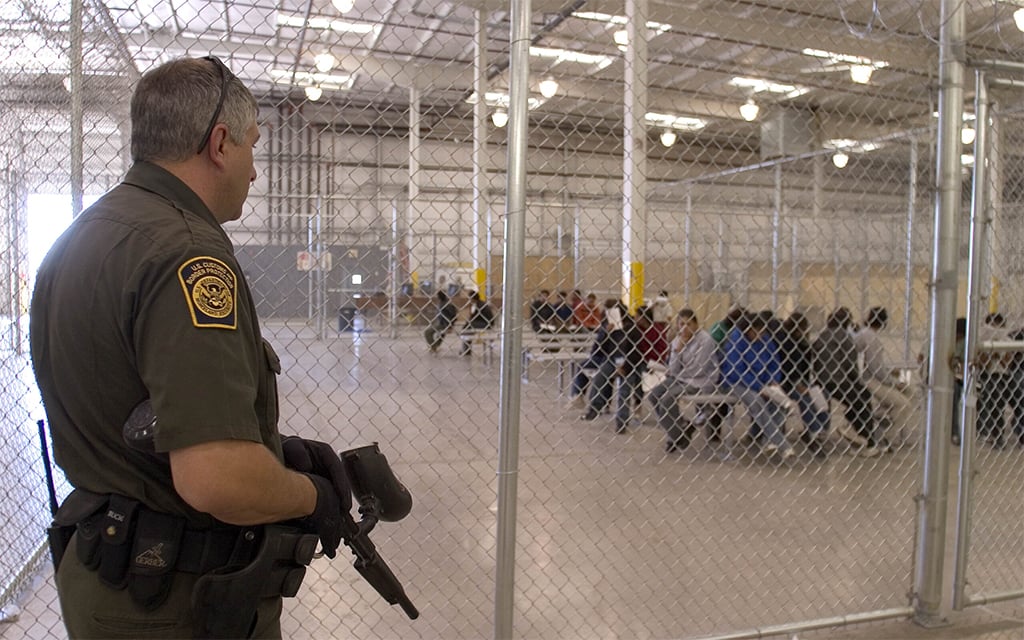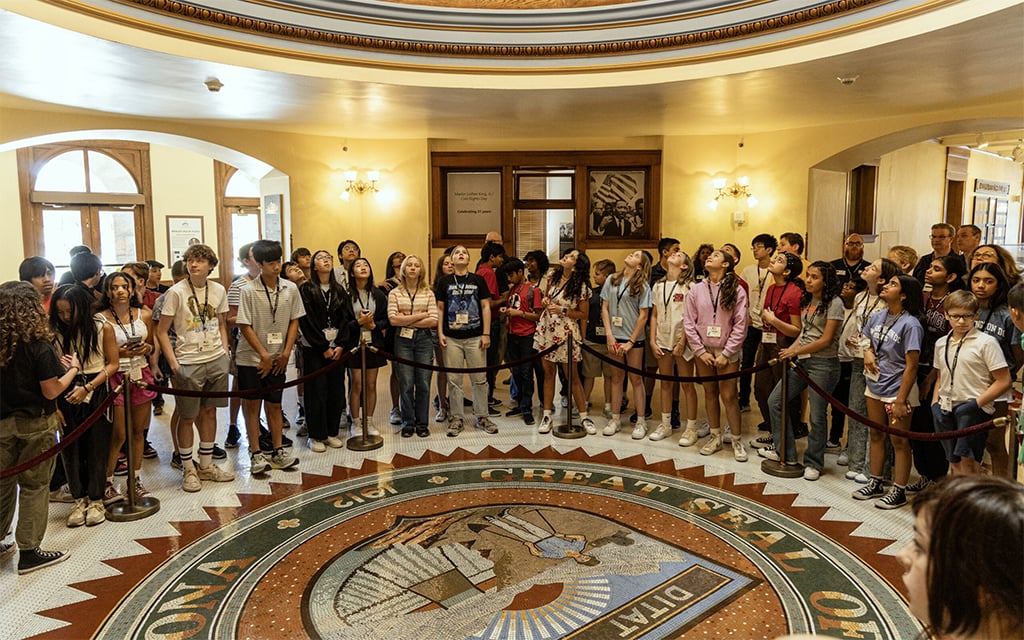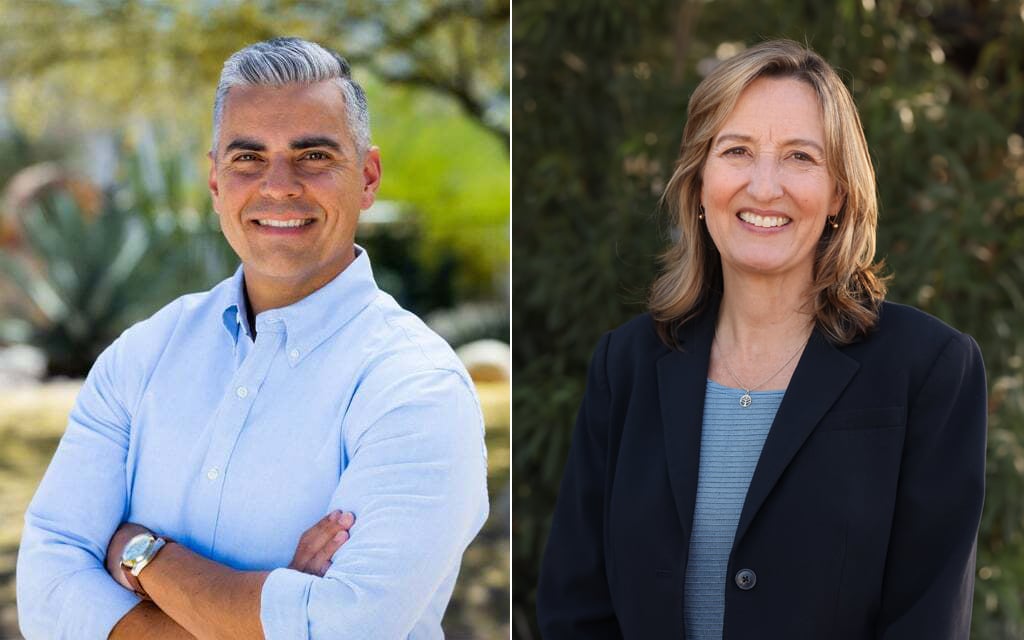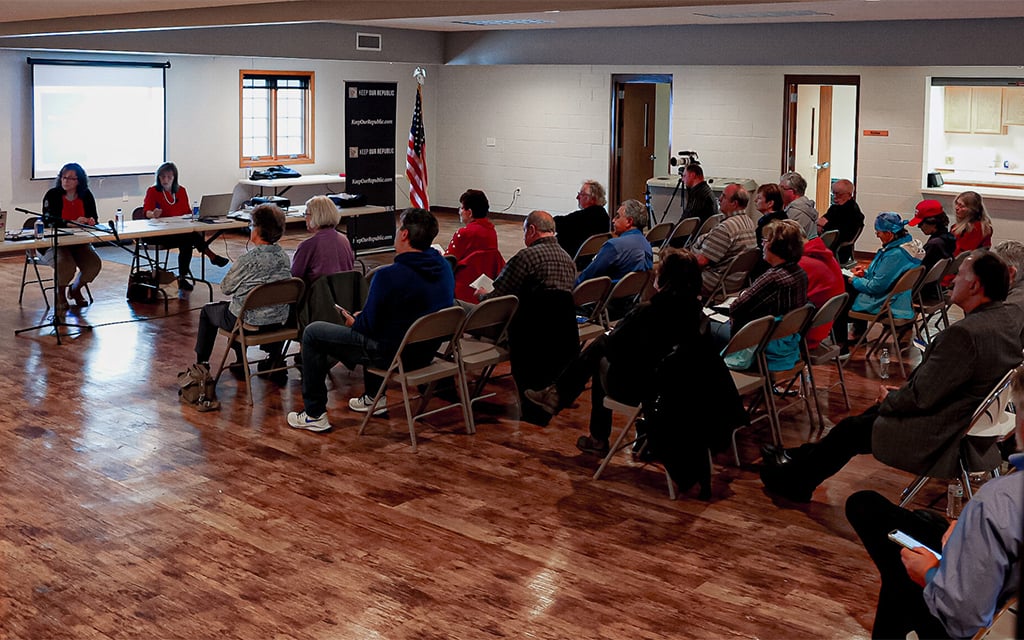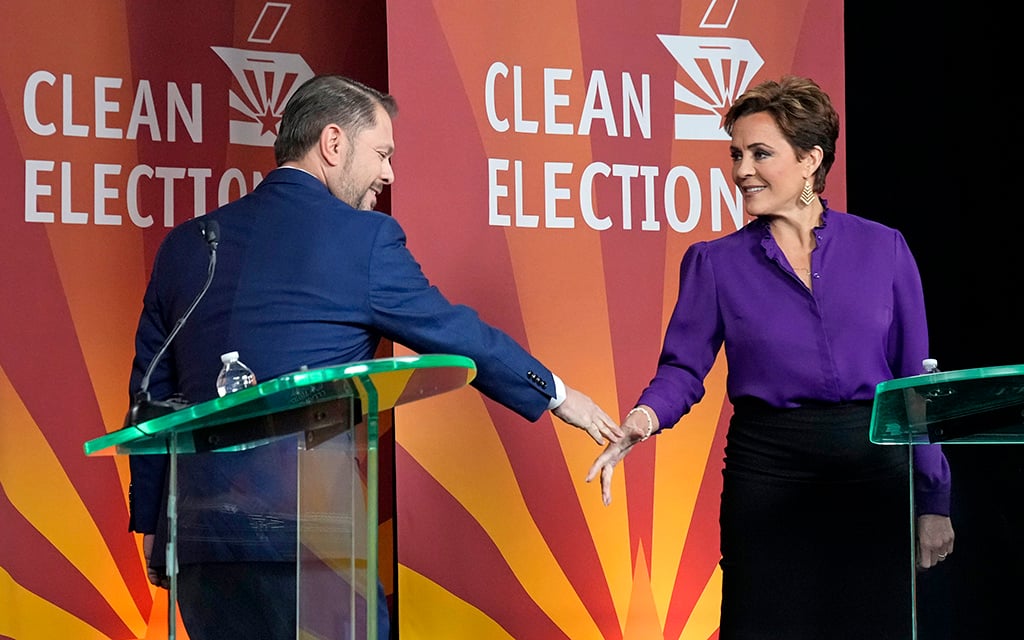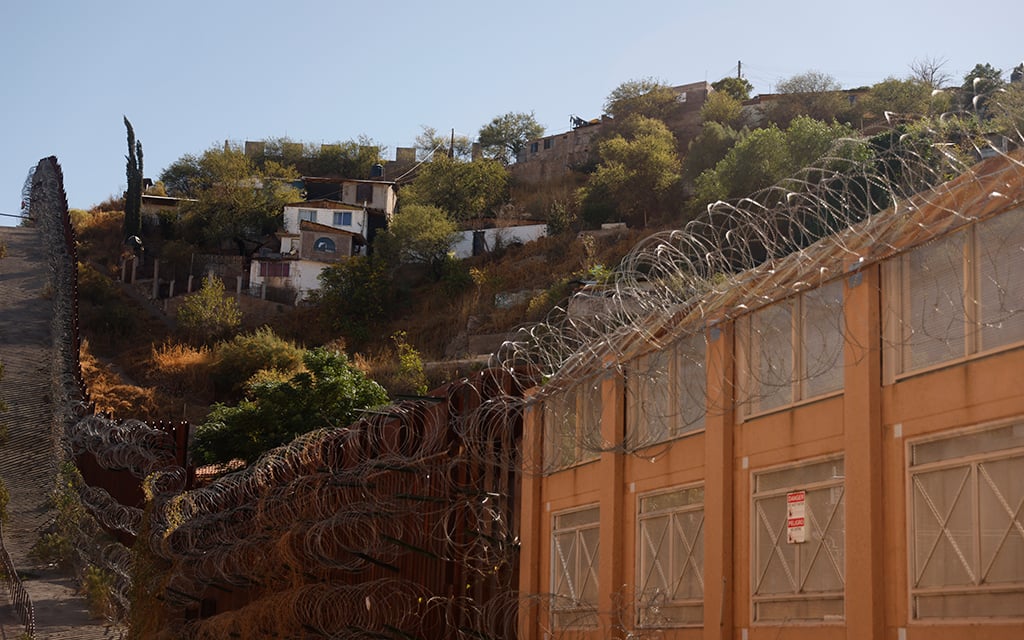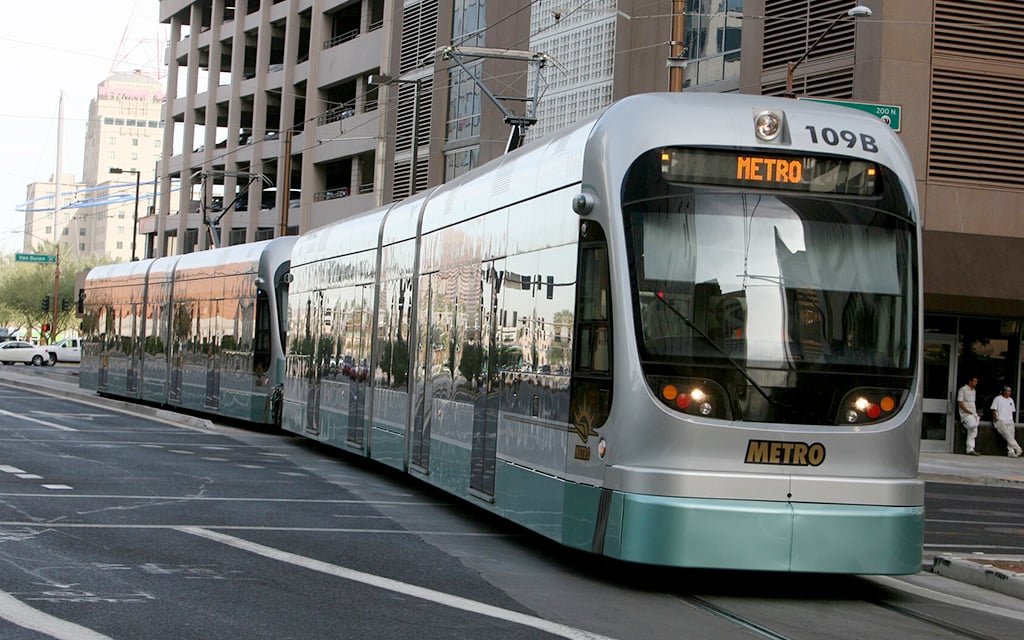WASHINGTON – Arizona voters gave overwhelming approval to a ballot measure that gives state and local police the power to arrest undocumented immigrants – the latest volley in a decades-long effort by conservatives dissatisfied with federal enforcement.
The margin was nearly 2-1. The Associated Press declared the race at 1 a.m. MST Wednesday.
Critics have warned that Proposition 314 would lead to racial profiling and harassment of migrants and U.S. citizens alike. Many have viewed it as an attempt to revive the controversial 2010 Arizona law known as Senate Bill 1070, which was largely struck down in court.
Backers say lax federal enforcement showed the need to ramp up state-level efforts, citing record levels of illegal border crossings earlier in the Biden administration.
“We can expect to see images of what we saw during SB 1070, which is families leaving our state … where they’re not being terrorized by the law enforcement,” said Abril Gallardo Cervera, chief of staff for Living United in Change Arizona (LUCHA). “Prop 314 uses the same tactics of SB 1070, which is targeting communities who look a certain way.”
Florence Immigrant and Refugee Rights Project called Prop. 314 “clearly unconstitutional” and promised Wednesday to fight it in the courts along with other opponents, declaring, “We stand with our communities against this racist legislation.”
The Republican-controlled Legislature put Prop. 314 on the ballot after Gov. Katie Hobbs, a Democrat, vetoed a bill in March that would have achieved the same goal: making it a crime under state law to enter the country from Mexico without authorization. The measure also allows state judges to order suspects returned to Mexico, though that likely would require voluntary compliance or federal cooperation.
“We hope it will send a message to people who have been previously deported, drug traffickers, human traffickers, people on a terrorist watch list, that if they try to sneak in, they may be caught,” said state Sen. John Kavanagh, R-Fountain Hills, a supporter of the proposition. “Deterring illegal immigrants as a whole helps us.”
Crossing the border illegally – that is, between ports of entry – is already a federal crime. Prop. 314, also known as the “Secure the Border Act,” would make it a crime under Arizona law to sneak into the state directly from Mexico. Migrants released into the U.S. instead of being detained by federal authorities would also be subject to arrest.
The proposal also included creation of a felony for selling fentanyl that leads to an overdose death.
The measure was partly modeled after Texas’ Senate Bill 4, which made it a crime under state law to enter the country illegally, authorized local law enforcement to make arrests for that infraction and gave state judges the power to order defendants returned to Mexico.
The Texas law is on hold pending a challenge from the U.S. Department of Justice, which argues that federal authority over immigration enforcement – especially deportation – preempts any state role.
The U.S. Supreme Court said as much when it struck down Arizona’s SB 1070 in 2012. Texas Gov. Greg Abbott has said he hopes the court uses the law he signed in 2023 to reverse that ruling.
Iowa and Oklahoma adopted copycat laws earlier this year. Those are also on hold pending legal challenges.
“You had Arizona looking at what Texas had done,” said Ryan DeMenna, an Arizona political consultant, calling it a “workaround” for state lawmakers to put the issue in the hands of voters after Hobbs’ veto.
“It’s effectively Arizona sending a message to Washington that they would like there to be something done about what’s happening at the border,” he said.
One provision of Prop. 314 is that it would not be enforced if the courts ultimately strike down the Texas law.
A September poll from Noble Predictive Insights’ Arizona Public Opinion Pulse found that nearly two-thirds of Arizona voters supported the ballot measure, including 52% of Democrats, 57% of independents and 77% of Republicans.
“SB 1070 and things like that might be far enough in the rearview mirror,” said Noah Schramm, a border policy strategist at ACLU of Arizona, which opposed both measures.
Former Gov. Jan Brewer, a Republican, signed the 2010 law, which allowed police to demand citizenship or immigration documents from anyone they had “reasonable suspicion” was in the country illegally, and to arrest anyone suspected of being deportable under federal law.
The ACLU and other groups called it a discriminatory “show me your papers” law. The U.S. Supreme Court struck down most of its provisions but allowed Arizona police to continue checking the immigration status of suspects detained for other reasons.
“One of the most harmful things that SB 1070 did and has done is bring immigration status in as a permissible factor for police stops,” Schramm said.
Prop. 314 “takes aim at people who may have crossed the border unlawfully,” he added, but “how do you know whether someone has crossed the border unlawfully? One of the factors that police are likely to use is … race or someone’s ability to speak English.”
That puts people with legal status at risk, he said.
Reyna Montoya, founder of Aliento, a group that worked to defeat Prop. 314, sought to reassure people potentially impacted “to let them know that they’re not alone.”
“This doesn’t go into effect immediately, and we are just expecting a lot of folks that have questions,” she said, calling it “disheartening to see that people have made (a) choice based out of fear and pain and that would lead to more suffering and pain.”
Kavanagh said Prop. 314 is worded more carefully than SB 1070. Efforts to conflate the two are “bogus claims meant to worry people,” he said.
“There aren’t going to be any people stopped in Maricopa County or Flagstaff or Tucson because this specifically says it only involves probable cause that somebody is actually crossing the border,” Kavanagh said.
State Rep. Alexander Kolodin, R-Scottsdale, said he was careful not to include a “show me your papers” provision in Prop. 314, an approach he opposes.
“The people who are telling you that this proposition is like SB 1070 are lying to you,” Kolodin said. “Without that (provision), I don’t see how anybody says it has anything to do with 1070 except for the fact that both concerned the border in some way.”
Illegal crossings hit record levels at the end of 2023. But even after the peak, former President Donald Trump and other Republicans continued to describe the situation as a crisis.
The number of encounters tallied by the Border Patrol dropped sharply in the past year, from over 2 million to about 1.5 million for the fiscal year that ended Sept. 30. Arizona accounted for about a third of those encounters. The Tucson sector surpassed El Paso as the busiest along the U.S.-Mexico border during that time.
Migrants released in border towns have strained local resources.
Opponents raised concerns about the cost of implementing Prop. 314 and the prospect that police departments would be overwhelmed.
The Arizona Department of Public Safety projected enforcement could cost state and local police $41 million.
The Arizona Center for Economic Progress, which opposed Prop. 314, estimated detentions alone would cost state taxpayers $224 million to $447 million annually. That assumed the state would end up holding 5% of migrants encountered at the border for three to six months each.
“The state isn’t providing funding to local governments for this, so if local governments want to pay to enforce this, they’re going to have to raise taxes,” said Geraldine Miranda, an economic policy analyst at the Arizona Center for Economic Progress.
The Grand Canyon Institute, a nonpartisan think tank, projected the state would also have to spend $140 million on 9,000 prosecutions under another new state crime created under Prop. 314: falsifying documents to E-Verify, a mandatory system to verify employment eligibility.
LUCHA was among the groups that trained migrants and others on their rights during the SB 1070 era. Cervera said the group would do so again if Prop. 314 passed.
One provision that drew somewhat less backlash would create a felony for selling fentanyl that results in a death. As a Class 2 felony, conviction would carry three to 35 years in prison.
The vast majority of people caught smuggling fentanyl across the border are Americans – over 85%, according to U.S. Sentencing Commission data.
Kassandra Alvarez, communications director at Rural Arizona Action, a nonprofit that advocates for rural communities, said it wasn’t fair to conflate fentanyl with illegal immigration.
Fentanyl, she said, “is a public health issue, not necessarily an immigration or criminal one.”
She also expressed concern about the impact on Arizona farmers.
“We have migrant workers that are now afraid,” she said. “We are not going to have migrant workers come and work in our agricultural sector here in Arizona because they could potentially be profiled and detained by police because of the color of their skin.”
The U.S. Supreme Court has given states some leeway to guard the border but has been less tolerant of state-level efforts to enforce immigration policy.
Allan Colbern, an assistant professor and immigration expert at Arizona State University’s School of Social and Behavioral Sciences, said the high court would likely strike down a measure like Prop. 314.
“In terms of civil rights, it doesn’t make sense,” he said. “What it’s going to do is create a very harsh policing environment inside of Arizona … that will affect immigrant communities and communities throughout the state in a negative way.”
Cronkite News reporters Fletcher Anderson and Saleh Awwad contributed to this story.


